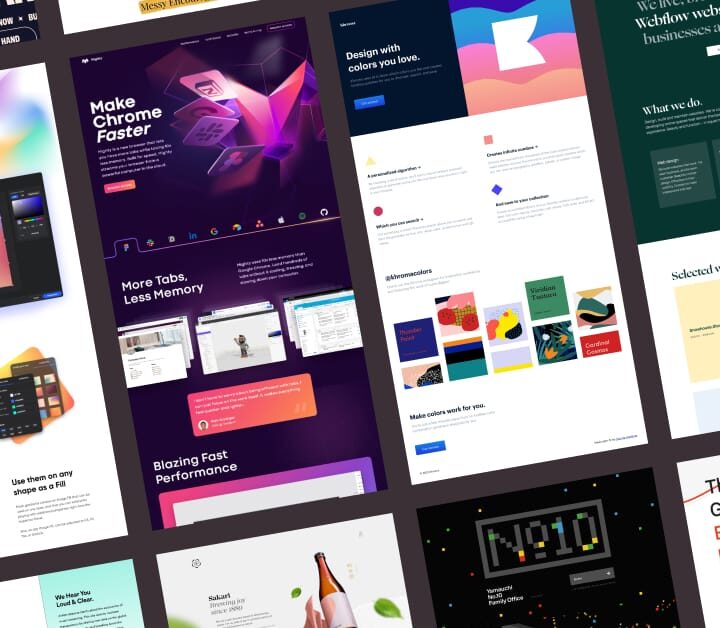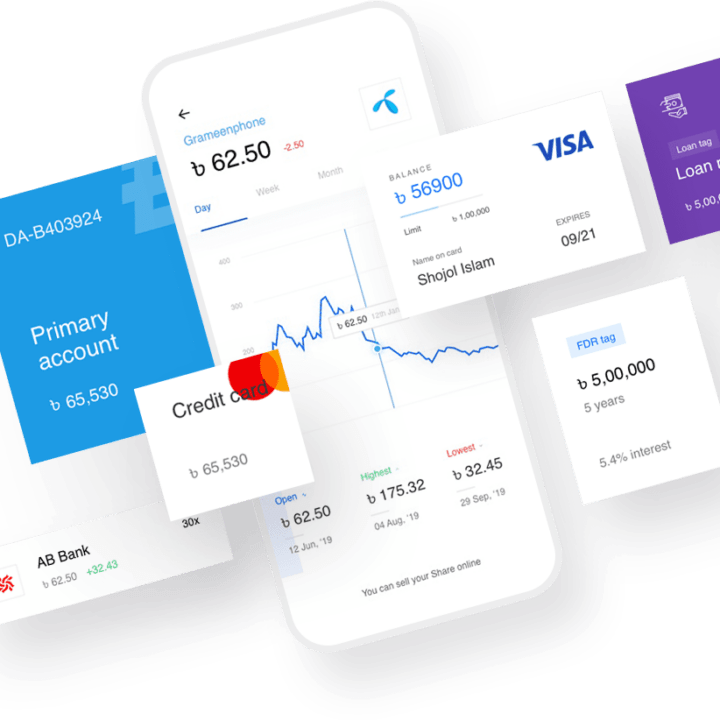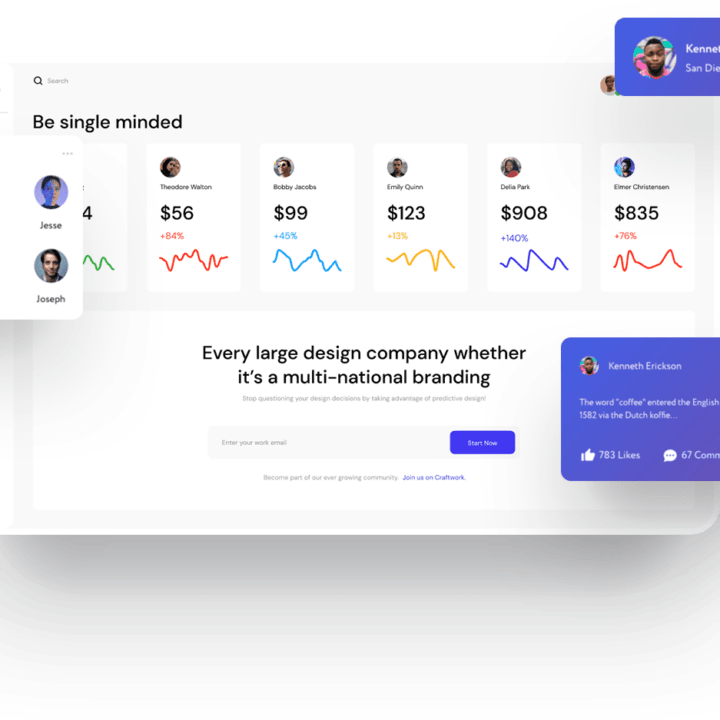🤖 Marketing Automation Strategies for Growing Businesses
🤖 Marketing Automation Strategies for Growing Businesses
As a business grows, so does the complexity of managing its marketing. Manually sending email blasts, posting on social media in real-time, and tracking leads in a spreadsheet might work initially, but these methods quickly become unsustainable. This is where marketing automation transforms a business from a reactive one to a proactive, efficient powerhouse. By leveraging software to automate repetitive tasks, you can personalize customer experiences at scale and free up your team to focus on strategy, not just execution.
For any growing business, automation can be the critical factor that separates stagnating growth from a major breakthrough. Whether you’re a startup founder, an e-commerce entrepreneur using a modern website builder, or a local business scaling up, adopting automation will improve lead nurturing, strengthen your sales pipeline, and dramatically boost your return on investment.
🤔 What is Marketing Automation?
Marketing automation is the use of technology to streamline, personalize, and measure marketing tasks and workflows. Instead of performing repetitive marketing activities manually—like sending welcome emails or posting on social media—automation software runs them intelligently in the background based on predefined triggers and schedules. Key areas include email campaigns, social media scheduling, lead scoring, CRM integrations, chatbots, and retargeting ads.
Automation is not about replacing marketers; it’s about empowering them to work smarter, not harder.
🚀 Why Businesses Need Marketing Automation
- Unmatched Efficiency: Save countless hours by automating tasks like email follow-ups, social media posting, and lead data entry. This frees up your team for high-value strategic work.
- Personalization at Scale: You can send thousands of customers tailored experiences based on their behavior. A user who viewed a specific product can receive an email about that exact product, something impossible to do manually.
- Smarter Lead Nurturing: Automatically guide prospects through your sales funnel with targeted content. A new lead might get an introductory email series, while a more engaged lead gets an invitation to a webinar.
- Data-Driven Decisions: Automation platforms provide rich analytics on what’s working and what’s not, allowing you to refine your strategies based on real data, not guesswork.
- Significant Revenue Growth: According to Invesp, businesses using marketing automation see a 451% increase in qualified leads, which directly translates to more sales.
🎯 Core Marketing Automation Strategies
1. Automated Email Sequences (Workflows)
Email automation is the cornerstone of lead nurturing. Instead of one-off blasts, you create workflows:
- Welcome Series: When someone subscribes, they automatically receive a series of 3-5 emails introducing your brand, setting expectations, and offering initial value.
- Abandoned Cart Emails: A must-have for e-commerce. If a customer leaves items in their cart, a timed email reminds them to complete their purchase, often with a small discount to entice them back.
- Re-Engagement Campaigns: Automatically send a special offer or a “we miss you” message to customers who haven’t purchased or engaged in a certain period (e.g., 90 days).
2. Lead Scoring & CRM Integration
How do you know which leads are ready to buy? Lead scoring automatically assigns points to prospects based on their actions (e.g., +5 points for visiting the pricing page, +10 for downloading a case study). When a lead reaches a certain score, they are automatically flagged as a “hot lead” and passed to the sales team via CRM integration.
3. Social Media Scheduling
Manually posting on multiple social platforms every day is a huge time sink. Tools like Buffer, Hootsuite, or Later allow you to schedule a week or month’s worth of content in one sitting. The software then posts it for you at the optimal times for engagement.
4. Chatbots & AI Assistants
A chatbot on your website can work for you 24/7. It can greet visitors, answer frequently asked questions, qualify leads by asking them questions, and even schedule appointments, all while your team is offline. This ensures you never miss a potential lead, no matter when they visit your site.
🛠️ Best Tools for Marketing Automation
- For Beginners: Mailchimp and ConvertKit offer user-friendly email automation that’s perfect for small businesses.
- For Growing Businesses: ActiveCampaign and HubSpot provide a powerful combination of email marketing, CRM, and advanced automation workflows.
- For Enterprises: Marketo and Pardot (Salesforce) are robust, enterprise-level platforms with deep analytics and customization.
- For Connecting Apps: Zapier is an essential tool that acts as a bridge, allowing you to create automated workflows between thousands of different apps that don’t natively integrate.
📊 Case Studies in Action
Case Study 1: SaaS Company Automates Lead Nurturing
A B2B SaaS startup was struggling with a long sales cycle. They implemented HubSpot to create an automated email workflow. When a user downloaded a whitepaper, they were entered into a 4-week email series that educated them on the industry problem, introduced the software as a solution, and ended with an offer for a personalized demo. This resulted in a 33% increase in sales-qualified leads with less manual follow-up from the sales team.
Case Study 2: Retailer Uses Abandoned Cart Automation
An online clothing boutique set up a 3-part abandoned cart email series. The first email was a simple reminder sent 1 hour after abandonment. The second, sent 24 hours later, highlighted customer reviews of the product. The third, sent 48 hours later, offered a 10% discount. Their cart recovery rate jumped to 20%, generating an additional $50,000 in revenue in the first quarter alone.
✅ Tips for Success with Automation
- Map Your Customer Journey First: Before you build any workflow, understand the path your customers take. This ensures your automated messages are sent at the right time.
- Keep it Personal: Use merge tags to include the customer’s name and reference their specific actions. Automation should feel personal, not robotic.
- Test Everything: A/B test your subject lines, email copy, CTAs, and send times to continuously improve performance.
- Segment Your Audience: Don’t send the same message to everyone. Segment your lists based on demographics, purchase history, or engagement level for maximum relevance.
⚠️ Common Mistakes to Avoid
- Over-Automating: Don’t lose the human touch entirely. Ensure customers can easily reach a real person if they need to.
- Ignoring the Data: Setting up automation is not a “set it and forget it” task. Regularly review your analytics and optimize your workflows.
- Not Aligning Sales and Marketing: Ensure your sales team knows what marketing messages leads are receiving so they can have a consistent conversation.
❓ Frequently Asked Questions
Is marketing automation only for large companies?
Not at all. In fact, small businesses and solopreneurs often benefit the most because it allows them to achieve the efficiency of a much larger team.
How expensive are automation platforms?
The cost varies widely. You can start with affordable tools like Mailchimp or ActiveCampaign for $10–$50 per month. Enterprise platforms like Marketo can cost thousands per month.
Will automation annoy my customers?
Only if it’s done poorly. If your automated messages are generic and frequent, they will feel like spam. But if they are timely, personal, and relevant, they will be seen as helpful and improve the customer experience.
How does automation work with a website builder?
Most modern website builders integrate seamlessly with marketing automation tools. You can easily embed forms that feed directly into your email lists and trigger automated workflows.
For growing businesses, marketing automation is the key to scaling efficiently, nurturing leads intelligently, and freeing up your valuable time for creative strategy. Start small with a welcome email series or an abandoned cart workflow, then expand from there. With Pixel Cloud Media’s Website Builder integrations and our digital agency services, your business can implement automation seamlessly and accelerate its growth.





